The touching reason a Peterborough family’s home became the ‘most popular on the street’
Coventry woman Hilda Copson was the first of her family to work with British Guide Dogs in 1961; years later, her granddaughter Liz Eley made their home a local attraction by taking on her role
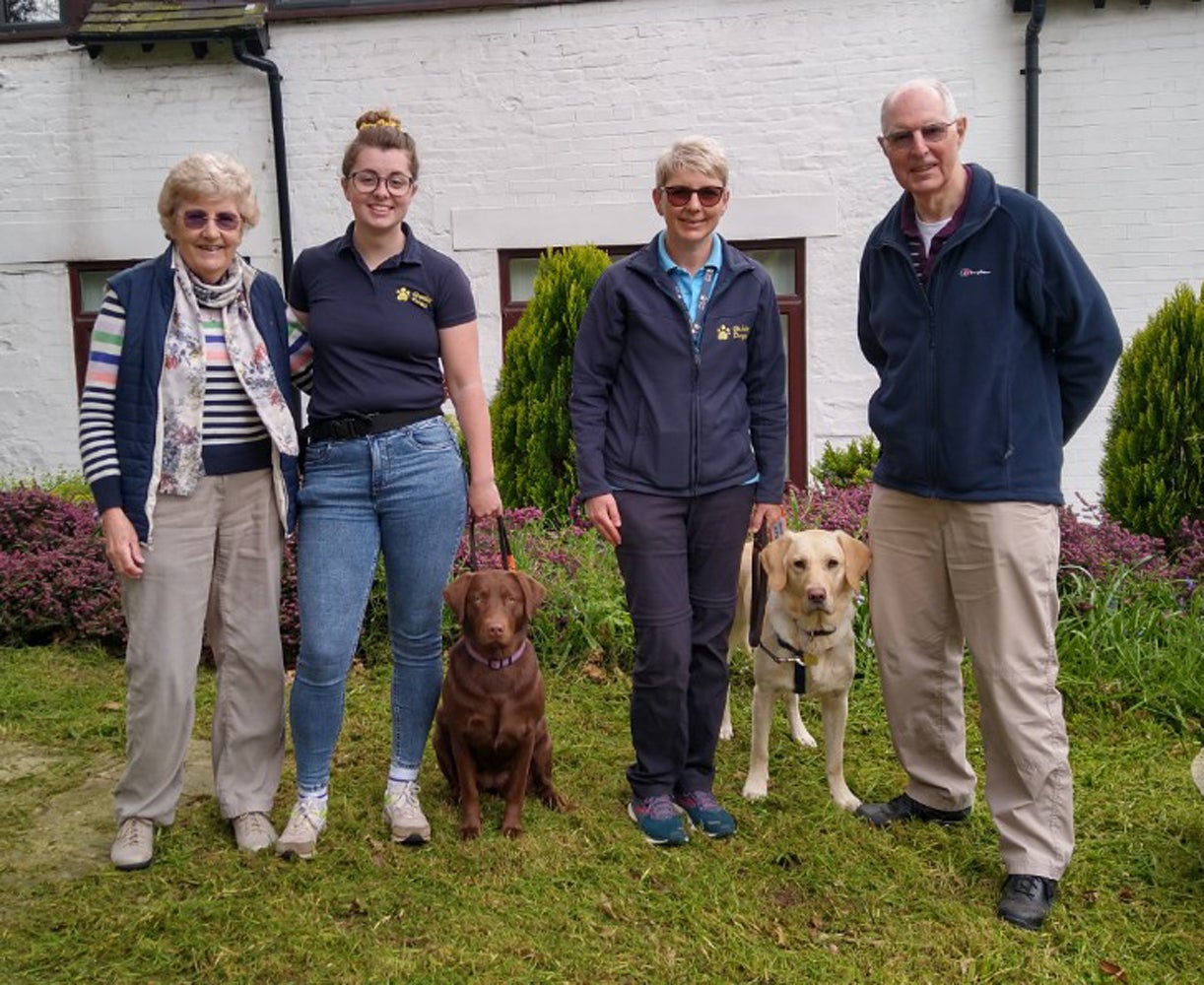
A mother-daughter duo are proudly continuing more than six decades of family involvement with the Guide Dogs charity as representatives of its third and fourth generation to raise and train dogs for them.
When Hilda Copson became a puppy walker in 1961 – just five years after the volunteer scheme was launched in 1956 – she sparked an enduring relationship which is still winning the hearts of her descendants well over half a decade later.
Certainly, Liz Eley, 53, a mother-of-two, of Warwick, Warwickshire, remembers her grandmother, Hilda – who started puppy walking soon after being widowed and went on to breed guide dogs for nearly 20 years until her death in 1979 – having some adorable dogs in her house in Coventry.
Then her parents, engineer Andrew Copson, 79, and librarian Jan Copson, 77, now retired, fulfilled her wish by taking on her role after her passing – making the family home in Peterborough, Cambridgeshire, the “most popular on the street” when she was growing up, according to Liz.
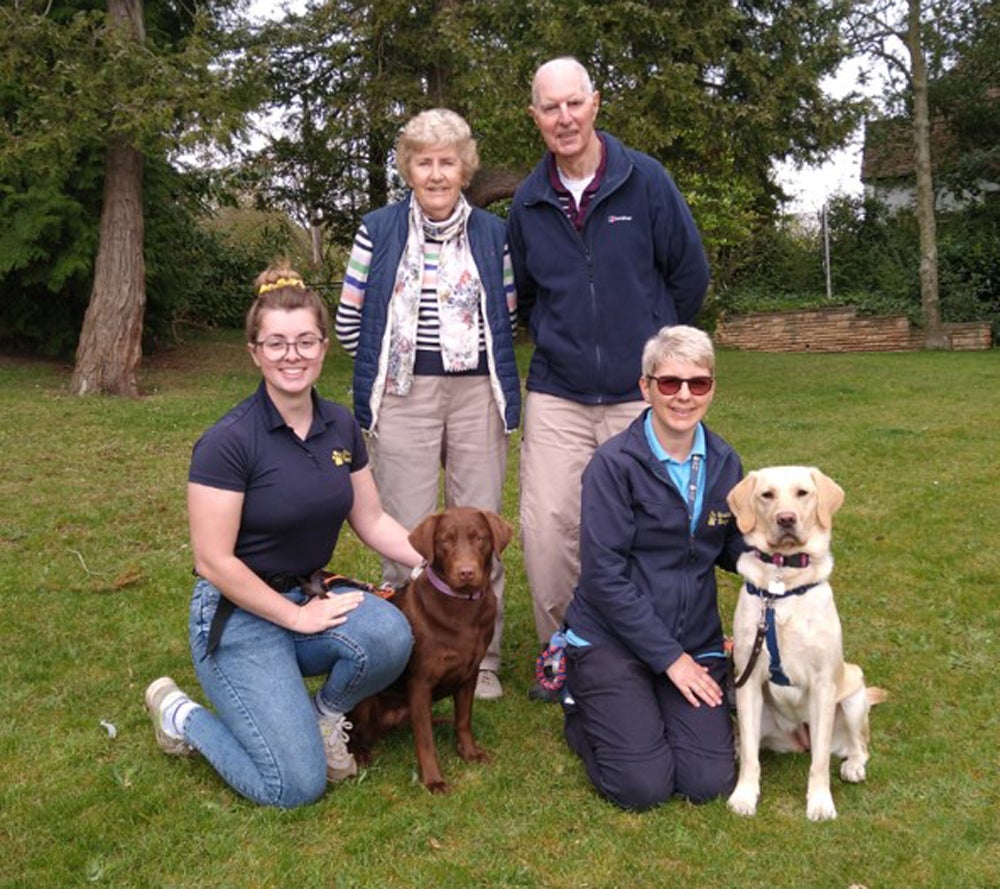
Liz, whose husband Jon Eley, 55, is a businessman, with whom she shares two daughters, Joanne, 23, an engineer, and Gemma, 26, said: “Having lots of dogs made our family home very popular.
“But it all started with my grandmother. She never had a puppy leave her home without having another one delivered at the same time, so there was always one there.
“One of my first memories is of my grandmother’s dog, Querida, who became withdrawn as a puppy, so she kept her as a pet and that was really where it all began for me.”
And that passion grew, as Liz is now coaching the next generation of Guide Dogs trainers, alongside her daughter Gemma – who never even met the great grandmother whose enduring legacy they are keeping very much alive.
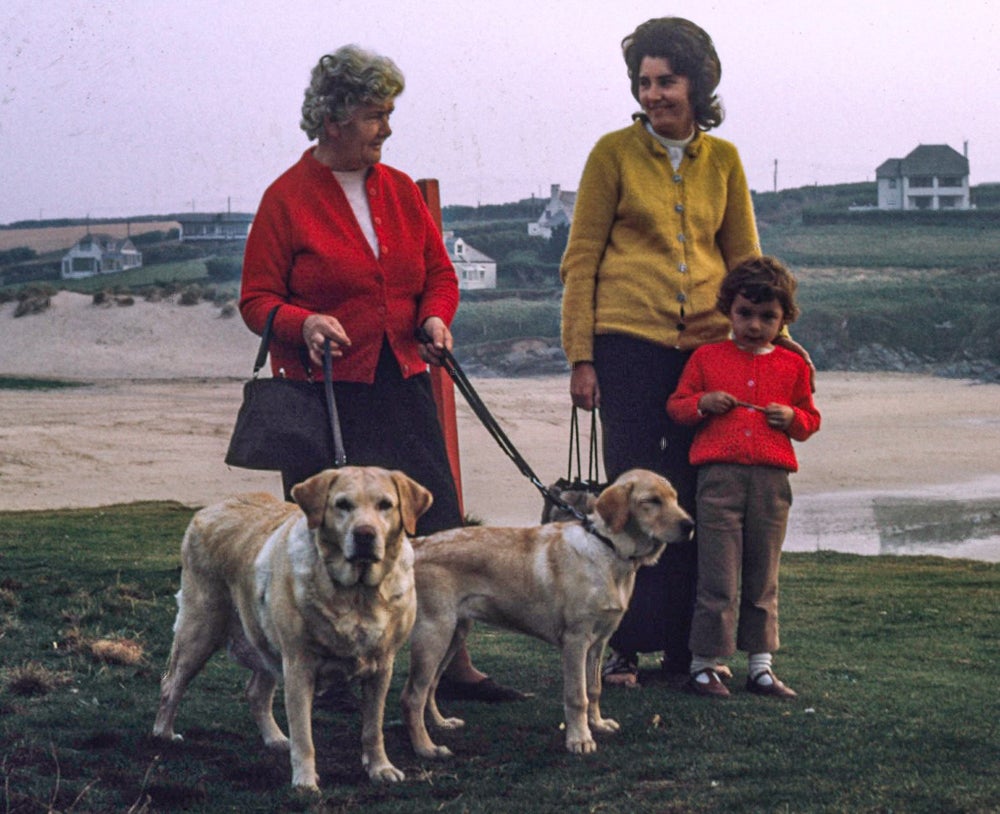
With Guide Dogs launching its pioneering breeding programme in 1960, the year before Hilda became a volunteer, she was soon nurturing puppies for them, too.
According to Liz, there was always a steady stream of six or seven week old puppies arriving at her home, ready for their first year of life before their all-important training.
She said: “My grandmother heard about the scheme from a few people she met in Coventry where she lived, so she decided to give it a go, as she always liked dogs.
“Her husband died in the late 1950s when my dad was 15, so I think it filled a gap for her.”
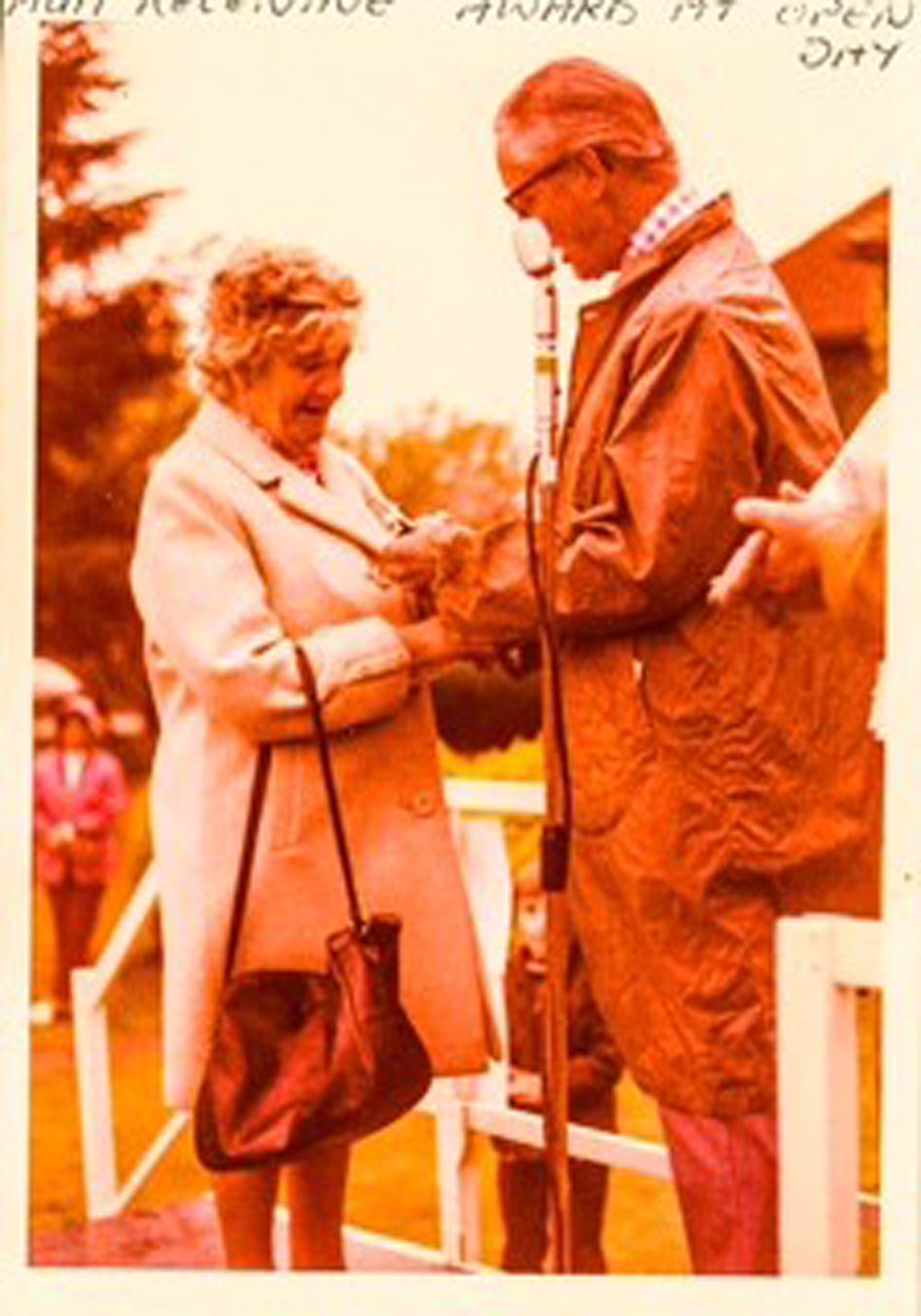
She added: “It became her life. She had the company of the dog and the responsibility of looking after it and otherwise she would have been on her own.
“I remember the photographs arriving of the dogs she’d cared for that had qualified as guide dogs and all their pictures being up on the sideboard and the wall.
“She never wanted to be without a puppy, so she always made sure that when one was collected, another little bundle would arrive.”
Hilda was also the first volunteer to ever take on a curly coated retriever, called Penny, a guide dog mum, who marked the first of her breed on the Guide Dogs scheme.
My friends thought it was fantastic, because when we had puppies - usually once a year - we were the most popular house in the street.
But as Hilda grew older, she swapped the high energy puppies for the older guide dog mums – the breeding females – right up until she died of a heart attack in 1979.
“It had been my grandmother’s wishes that my parents should take on her dog, Penny, and continue with Guide Dogs,” Liz said.
“Mum did most of it, because my dad was quite busy with work.
“To me, it was just normal having these dogs.
“My friends thought it was fantastic, because when we had puppies – usually once a year – we were the most popular house in the street.”
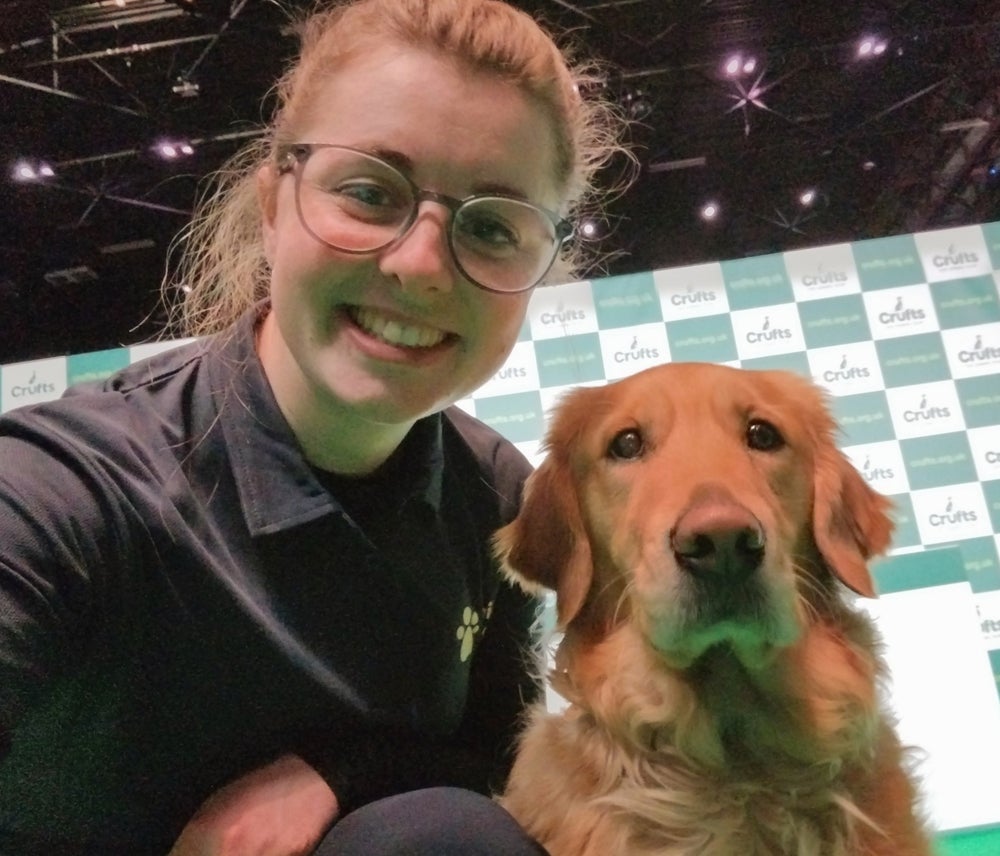
While the family loved the joy of having a dog at home and looked forward to the puppy seasons, they also had a very strong sense of purpose.
Liz said: “When we moved to Peterborough when I was 11, my mum got in touch with the local Guide Dogs fundraising branch there, so we could meet a few people and get to know some guide dog owners.
“You could see how independent a life they had just through having this dog, that they wouldn’t have otherwise.
“We got to know a few owners and you could see the difference it made.
“When people were in between dogs, their life was so different. They couldn’t just go out and plan their day. They would have to wait for someone to be available to go to the shop with them and they just lost that spontaneity.”

Liz was just eight years old when she resolved to follow in her grandmother’s footsteps and carry on her work with Guide Dogs.
“I always knew I wanted to work with Guide Dogs,” she said.
“When my parents took over, it was something they were quite familiar with because of my grandma and, by that age, I was already showing a really strong interest.
“I remember it was always interesting when you had the compulsory careers advisor talk at school, because they had never heard of Guide Dogs – I would know more than them.
“It was just assumed in those days you would become a nurse or go to secretarial college.”
As soon as Liz was old enough, she began writing to the Guide Dogs centres and applying for work, before being accepted in Redbridge, Essex, aged 17, where she spent three years looking after the dogs before moving to Leamington Spa, Warwickshire, with her husband-to-be, as a qualified dog trainer.
She said: “As a trainer then, you would have five or six dogs each.
“You would have time with them individually, taking them out training and then doing training sessions in the morning and the afternoon.”
While Liz’s parents retired from their volunteer efforts, she continued working for Guide Dogs, even throughout her children’s early years, part-time.
“We had our own guide dog mum, a golden retriever Saffron, called Saffy, who had four litters of puppies with us,” she said.
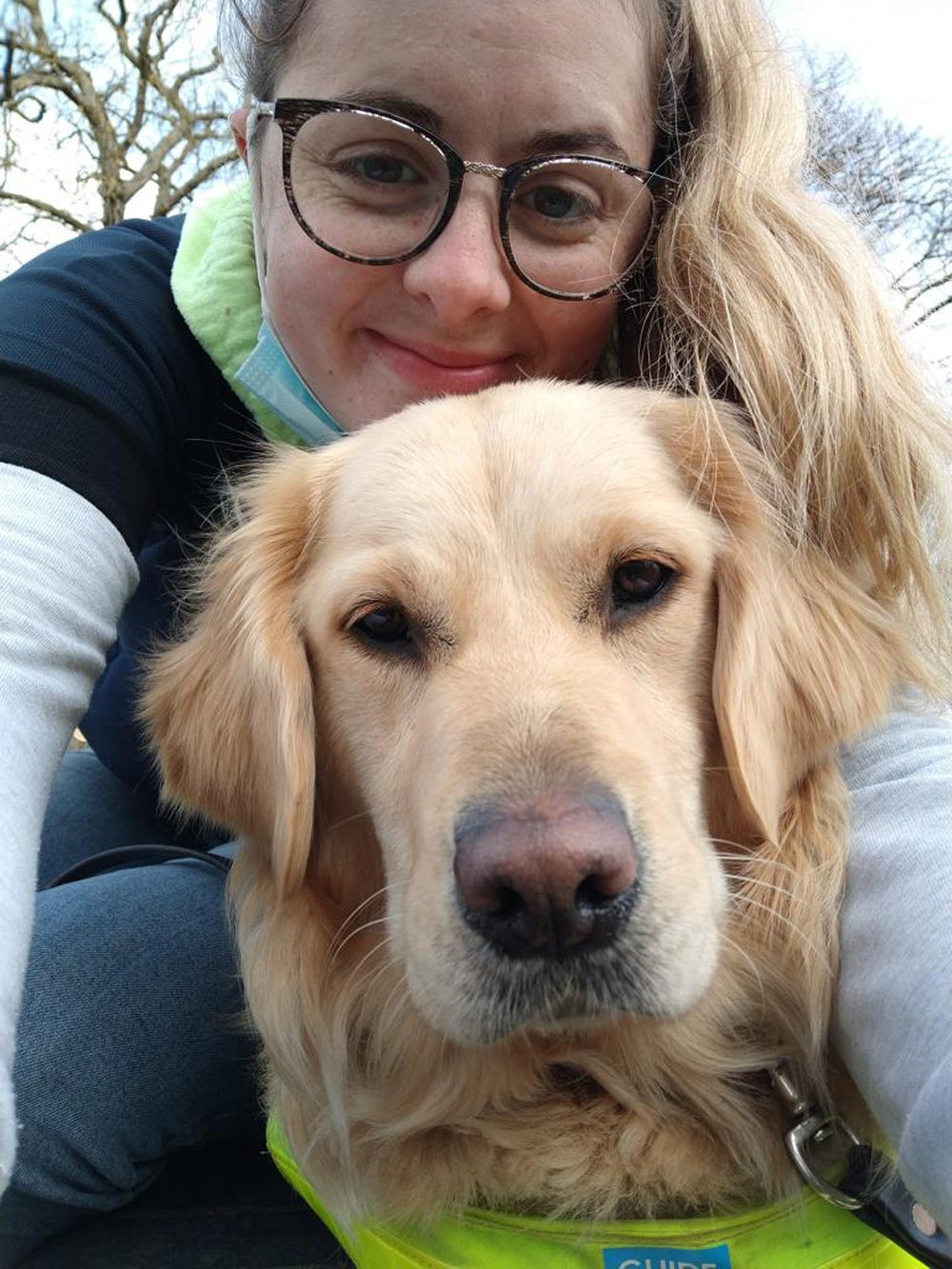
“We occasionally foster guide dogs too, when their carers are on holiday, like this Easter, we had two dogs in training who we have looked after.”
While her eldest daughter, Gemma, has now taken on the role of dog trainer, Liz has moved on to a new job – coaching the next generation of guide dog trainers for the future, before she retires in the next few years.
She said: “I would never have imagined doing this, but when Guide Dogs said they were creating an academy of trainers, I thought, ‘That is a good thing to do.'”
“I feel I have a lot of experience and knowledge and I want to share that with people and pass it on.”
Much like her mum, Gemma can only remember a life with dogs.
She said: “I remember at three years old having a pet dog that we had rehomed, Earl, who was a very white, fluffy golden retriever.
“He was withdrawn from being a guide dog for health reasons, so he became our pet for the next eight years, before we got Saffy too.
“I knew pretty early on I would work with Guide Dogs.
“It sounds cringy, but even in circle time in primary school, I always used to say I would be a trainer.”
It sounds cringy, but even in circle time in primary school, I always used to say I would be a trainer
Despite her early dreams of dog training and work experience as a teen looking after puppies, Gemma went on to university in 2015 to study sports therapy.
But just three months in, then aged 20, she dropped out to continue with Guide Dogs full time, officially qualifying as a trainer in 2017.
“I was definitely inspired by my mum and still am,” she said.
“I tried to go to uni to do sport but, deep down, I think I knew that I still wanted to be a guide dog trainer.”
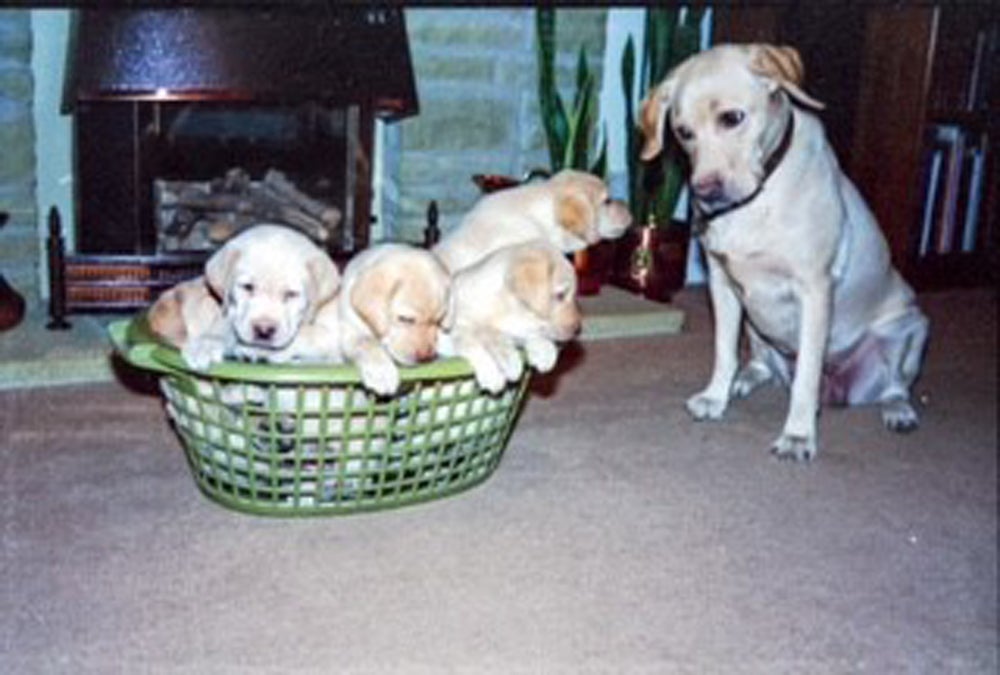
She added: “I really enjoy my job and no day is ever the same.
“It keeps you on your toes. You get different dogs coming through and you get to see them develop and go out and change somebody’s life.”
With plans to become a guide dog mobility specialist – someone who helps people with visual impairment have freedom and independence with a guide dog – Gemma is also keen to encourage others to volunteer with Guide Dogs.
It is one thing training dogs and seeing their progression, but it's another to see them matched to somebody who they could change the life of and stay with for the rest of the dog's days and give them that independence and mobility
She said: “When somebody asks how I got into guide dog training, I always have this story to tell.
“It is one thing training dogs and seeing their progression, but it’s another to see them matched to somebody who they could change the life of and stay with for the rest of the dog’s days and give them that independence and mobility.
“That’s what makes it worthwhile.”
To find out more about volunteer roles at Guide Dogs, visit https://www.guidedogs.org.uk/volunteer
Bookmark popover
Removed from bookmarks